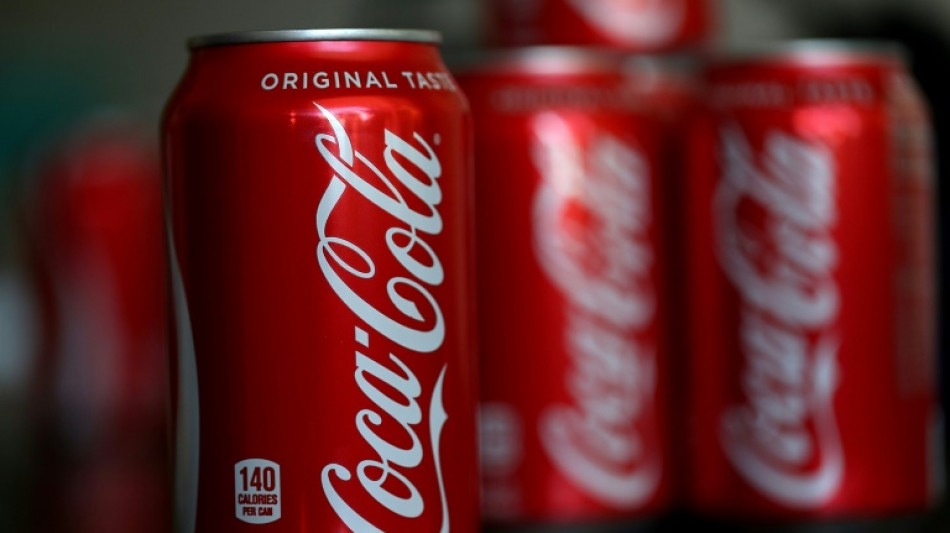
-
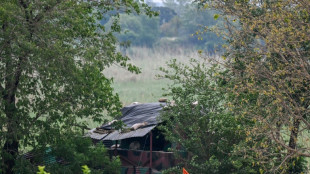 Lives on hold in India's border villages with Pakistan
Lives on hold in India's border villages with Pakistan
-
Musk's dreams for Starbase city in Texas hang on vote
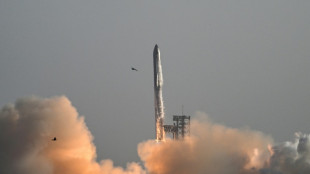
-
 Rockets down Warriors to stay alive in NBA playoffs
Rockets down Warriors to stay alive in NBA playoffs
-
Garcia beaten by Romero in return from doping ban
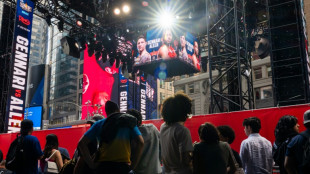
-
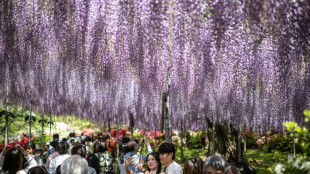 Inflation, hotel prices curtail Japanese 'Golden Week' travels
Inflation, hotel prices curtail Japanese 'Golden Week' travels
-
Trump's next 100 days: Now comes the hard part
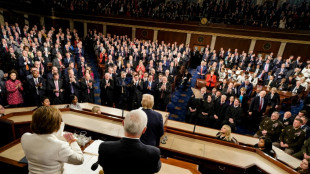
-
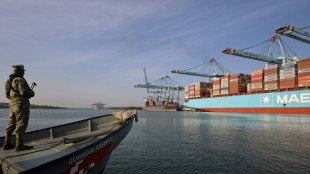 Mexican mega-port confronts Trump's tariff storm
Mexican mega-port confronts Trump's tariff storm
-
Trump's tariffs bite at quiet US ports
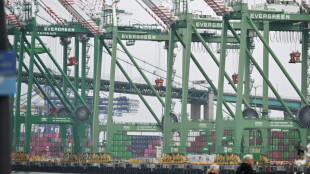
-
 Ryu stretches lead at LPGA Black Desert Championship
Ryu stretches lead at LPGA Black Desert Championship
-
Singapore votes with new PM seeking strong mandate amid tariff turmoil

-
 Five things to know about the Australian election
Five things to know about the Australian election
-
Scheffler fires 63 despite long delay to lead CJ Cup Byron Nelson

-
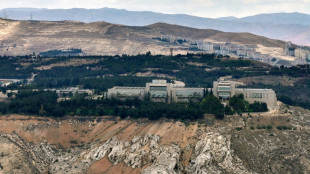 Israel launches new Syria strikes amid Druze tensions
Israel launches new Syria strikes amid Druze tensions
-
Finke grabs 400m medley victory over world record-holder Marchand

-
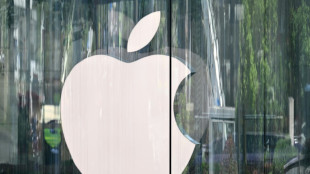 Apple eases App Store rules under court pressure
Apple eases App Store rules under court pressure
-
Polls open in Australian vote swayed by inflation, Trump
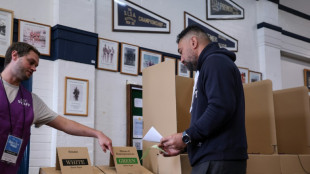
-
 Russell clocks second fastest 100m hurdles in history at Miami meeting
Russell clocks second fastest 100m hurdles in history at Miami meeting
-
Germany move against far-right AfD sets off US quarrel

-
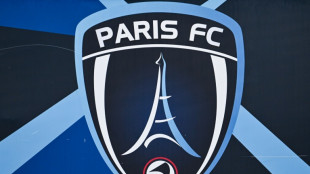 Billionaire-owned Paris FC win promotion and prepare to take on PSG
Billionaire-owned Paris FC win promotion and prepare to take on PSG
-
Teenager Antonelli grabs pole for Miami sprint race

-
 Man City climb to third as De Bruyne sinks Wolves
Man City climb to third as De Bruyne sinks Wolves
-
Mercedes' Wolff backs Hamilton to come good with Ferrari
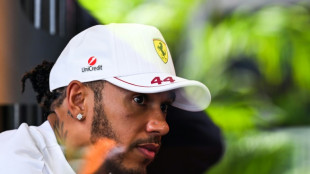
-
 'Devastated' Prince Harry says no UK return but seeks reconciliation
'Devastated' Prince Harry says no UK return but seeks reconciliation
-
Elway agent death likely accidental: report

-
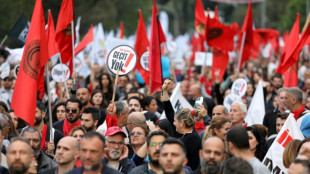 Turkish Cypriots protest new rule allowing hijab in school
Turkish Cypriots protest new rule allowing hijab in school
-
Germany's AfD dealt blow with right-wing extremist label

-
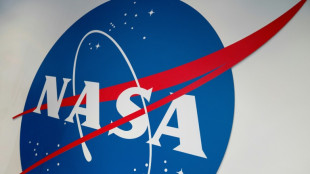 Trump NASA budget prioritizes Moon, Mars missions over research
Trump NASA budget prioritizes Moon, Mars missions over research
-
Hard-right romps through UK polls slapping aside main parties
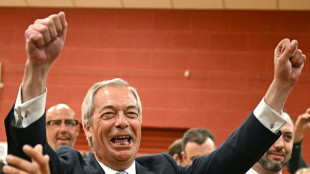
-
 Rangers hire two-time NHL champion Sullivan as coach
Rangers hire two-time NHL champion Sullivan as coach
-
Haaland on bench for Man City as striker returns ahead of schedule

-
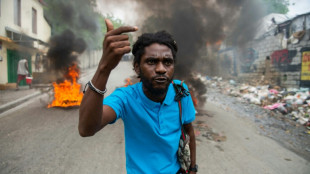 US designates two Haitian gangs as terror groups
US designates two Haitian gangs as terror groups
-
Lower profits at US oil giants amid fall in crude prices
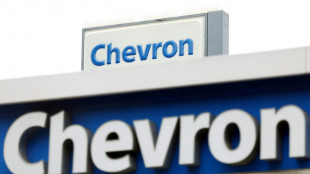
-
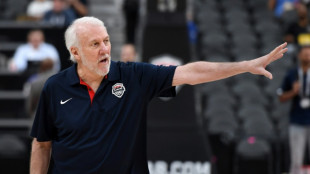 NBA icon Popovich stepping down as Spurs coach after 29 seasons
NBA icon Popovich stepping down as Spurs coach after 29 seasons
-
'Devastated' Prince Harry says no return to UK but seeks royal reconciliation

-
 Grande scratched from Kentucky Derby
Grande scratched from Kentucky Derby
-
Carney vows to transform Canada economy to withstand Trump
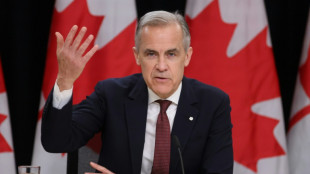
-
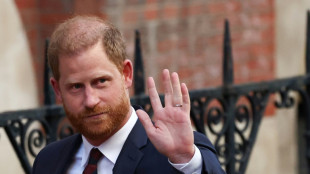 Prince Harry says he would 'love' to reconcile with family
Prince Harry says he would 'love' to reconcile with family
-
Major offshore quake causes tsunami scare in Chile, Argentina
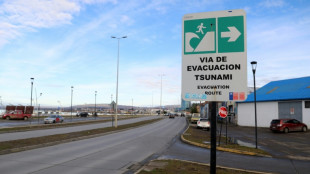
-
 GM cuts shift at Canada plant over 'evolving trade environment'
GM cuts shift at Canada plant over 'evolving trade environment'
-
F1 extends deal to keep Miami GP until 2041

-
 Popovich mixed toughness and spirit to make NBA history
Popovich mixed toughness and spirit to make NBA history
-
US asks judge to break up Google's ad tech business

-
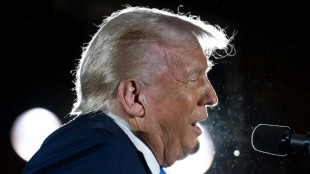 Trump eyes huge 'woke' cuts in budget blueprint
Trump eyes huge 'woke' cuts in budget blueprint
-
Ruud downs Cerundolo to book spot in Madrid Open final
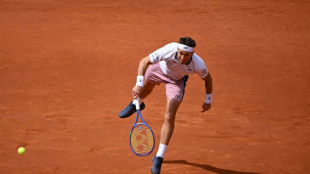
-
 Gregg Popovich stepping down as San Antonio Spurs coach after 29 seasons: team
Gregg Popovich stepping down as San Antonio Spurs coach after 29 seasons: team
-
Guardiola to take break from football when he leaves Man City

-
 Vine escapes to Tour of Romandie 3rd stage win as Baudin keeps lead
Vine escapes to Tour of Romandie 3rd stage win as Baudin keeps lead
-
Olympic 100m medalist Kerley arrested, out of Miami Grand Slam meet

-
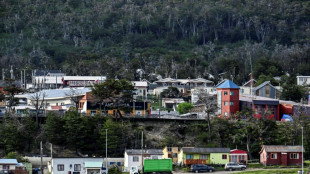 Chile, Argentina order evacuations over post-quake tsunami threat
Chile, Argentina order evacuations over post-quake tsunami threat
-
Arteta 'pain' as Arsenal fall short in Premier League title race


'Coca' pits indigenous Colombians against soft drink giant
Indigenous Colombians are going head to head with the world's biggest soft drink company over the commercial use of the word "coca" -- the name of an indigenous South American plant.
Representatives of the Nasa and Embera Chami tribes are threatening to ban the sale of Coca-Cola in their territories after the Coca-Cola Company incurred their ire by taking issue with the name of a locally-produced beer, Coca Pola.
They sent a letter to the multinational corporation, a copy of which AFP has seen, giving it 10 days to explain its "non-consensual use" of the word "Coca" in Coca-Cola -- the world's most popular fizzy drink.
If the company fails to reply, the communities threatened "judicial and commercial measures" including "the prohibition of the sale of its products in indigenous territories."
These reserved territories, according to Colombia's National Land Agency, cover almost a third of the country, or 33 million hectares, though less than 10 percent of the population identifies as indigenous.
For centuries, indigenous peoples in Colombia, Peru and elsewhere on the continent have chewed the coca leaf and defended it as part of their cultural heritage.
The plant is also used in the production of cocaine, of which Colombia is the world's largest exporter and the United States its biggest consumer.
- 'Abusive' trademark -
Indigenous peoples in Colombia are allowed by law to grow the plant and market products manufactured from it.
One such product, Coca Pola, has been manufactured by local company Coca Nasa for four years. "Pola" means beer in Colombia.
Three months ago, Coca-Cola threatened legal action against Coca Nasa, which employs about 20 people and produces food, traditional medicine, drinks and other coca products.
Coca-Cola asked the company -- run by members of the indigenous Nasa community -- to "cease and desist permanently from using the name Coca Pola or any similar term that could be confused with the commercial brands" owned by the drinks giant.
In turn, the Nasa and Embera Chami now claim the more than 100-year-old Coca-Cola trademark, registered without consulting them, amounts to an "abusive practice" that violates "the national, Andean and international human rights systems."
Nasa leader Fabiola Pinacue, who signed the letter to Coca-Cola, defended her community's right to use the trademark Coca Pola.
"The coca leaf is a key element of the Nasa culture," insisted Pinacue.
Legal firm Brigard Castro, the legal representative for Coca-Cola in Colombia, did not reply to a request from AFP for comment.
David Curtidor, a lawyer representing Coca Nasa, pointed out that in 2012 a judge ruled in favor of an indigenous organization that sued a Colombian businessman for registering the brand "Indigenous Coca" without consulting the community.
After the ruling, the brand left the market.
D.Cunningha--AMWN